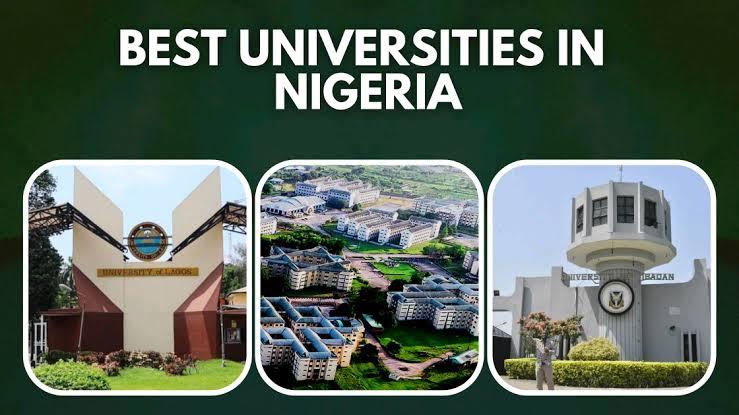Thinking of Studying for a Master’s in Nigeria?
Nigeria is home to some of the most reputable universities in Africa, with affordable tuition, English-language instruction, and diverse academic programs. International students from Africa, Asia, and beyond are increasingly choosing Nigeria for postgraduate education.
If you're planning to pursue a Master’s degree in Nigeria as a foreign student, here's a complete breakdown of the eligibility, required documents, application process, and other essential info you need.
Who is Eligible?
To be eligible for admission into a Master's program in Nigeria as an international applicant, you must:
-
Hold a recognized Bachelor's degree from an accredited institution (equivalent to Nigeria’s B.Sc., B.A., or B.Ed.)
-
Have a minimum of Second Class Lower (2:2) or its equivalent (GPA of 2.50 on a 4.00 scale)
-
Provide proof of English proficiency if your undergraduate education was not in English
-
Possess a valid international passport and student visa (STR Visa)
Documents Required for Application
International students must prepare and upload the following documents when applying:
| Document | Description |
|---|---|
| Bachelor's Degree Certificate | From a recognized university |
| Academic Transcripts | Sealed and signed by your previous institution |
| International Passport | Valid for at least 6 months |
| Birth Certificate or National ID | Proof of age and citizenship |
| English Language Proficiency Test | TOEFL/IELTS (if applicable) |
| Letter of Recommendation (2-3) | Preferably from academic referees |
| Statement of Purpose | Explaining your academic goals |
| WAEC/Equivalent O’Level Result | 5 subjects including English & Maths |
| Application Fee Payment Receipt | ₦10,000 to ₦25,000 depending on the university |
English Language Requirements
If your first degree was taught in English, most Nigerian universities waive language test requirements. However, for students from non-English speaking countries, IELTS or TOEFL scores may be requested.
| Test | Minimum Score (Typical) |
|---|---|
| IELTS | 6.0 – 6.5 |
| TOEFL | 70 – 80 (iBT) |
Top Universities in Nigeria Accepting International Students
-
University of Ibadan (UI) – Strong in sciences and education
-
University of Lagos (UNILAG) – Business, social sciences, tech
-
Ahmadu Bello University (ABU Zaria) – Engineering, public admin
-
University of Nigeria Nsukka (UNN) – Arts, education, medicine
-
Obafemi Awolowo University (OAU) – Humanities, law, tech
-
Covenant University – Private Christian university with global partnerships
-
University of Ilorin (UNILORIN) – Known for academic stability
Duration of Study
| Program Type | Full-Time Duration |
|---|---|
| M.Sc. / MA | 12 – 18 months |
| MBA / Executive M.Sc. | 18 – 24 months |
| M.Ed. / MPH | 12 – 24 months |
How to Apply for a Master’s Program in Nigeria (For Foreigners)
Step 1: Choose a University & Program
Research Nigerian universities that offer your preferred course. Visit the postgraduate school portal for admission details.
Step 2: Prepare and Scan All Required Documents
Ensure documents are in PDF/JPEG and properly labeled.
Step 3: Pay the Application Fee
International applicants can usually pay online using debit/credit cards.
Step 4: Complete the Online Application Form
Fill in personal details, academic history, referees, and upload all scanned documents.
Step 5: Wait for Admission Notification
You may be invited for a virtual interview or online screening test, depending on the program.
Visa Requirements for International Students
Once admitted, you must apply for a Subject to Regularization (STR) Visa to study in Nigeria. Here's what you'll need:
-
Admission Letter from a Nigerian university
-
Visa Application on Nigeria Immigration Portal
-
Proof of Funds to support your stay
-
Medical Certificate
-
Yellow Fever Vaccination Card
-
Passport Photographs
Visa processing typically takes 2–4 weeks and must be done at a Nigerian embassy or consulate in your country.
Tips for a Smooth Application
-
Start early: Document authentication and visa processes can take time.
-
Check accreditation: Only apply to NUC-approved universities to avoid visa issues.
-
Budget wisely: Tuition for international students ranges from $1,000 to $5,000 USD per year depending on the institution.
-
Stay in touch with the school's international office: They assist with admissions, visa letters, and accommodations.
Final Thoughts
Pursuing a Master's degree in Nigeria as an international student is a smart move if you're seeking quality education, cultural exposure, and affordable tuition. With English as the primary language of instruction, a wide range of programs, and globally respected degrees, Nigeria is an increasingly attractive study destination.











